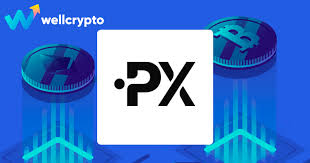
Do You Need a VPN? Understanding the Importance of Virtual Private Networks
In today’s digitized world, privacy and security are more essential than ever. From online banking to streaming content, every activity we do over the internet involves some level of risk. As such, many users are asking themselves, “Do you need a VPN?” A Virtual Private Network (VPN) offers a solution to enhance privacy and security online. For instance, a user might engage with a do you need a vpn for primexbt PrimeXBT trading platform to manage investments, and using a VPN can help protect sensitive information during such transactions.
What is a VPN?
A VPN, or Virtual Private Network, is a service that creates a secure, encrypted connection between your device and the internet. It acts as a tunnel that shields your online activities from prying eyes, including ISPs, hackers, and even government surveillance. When you connect to a VPN, your IP address is masked, making it more challenging to track your online movements.
Reasons Why You Might Need a VPN
1. Enhanced Security
One of the primary reasons people choose to use a VPN is for enhanced security. This is especially important when using public Wi-Fi networks, which are often vulnerable to cyberattacks. A VPN encrypts your internet traffic, protecting your sensitive data, such as passwords and credit card information, from being intercepted by malicious actors.
2. Privacy Protection
In an era where data privacy has become a pressing concern, a VPN can help safeguard your personal information. Without a VPN, your internet service provider can monitor your online activities and sell your data to third parties. Using a VPN ensures that your browsing information remains private and inaccessible to unauthorized entities.
3. Access to Restricted Content
Many websites and streaming platforms restrict access to their content based on geographical location. A VPN allows you to bypass these restrictions by masking your real IP address and appearing as though you are accessing the internet from a different location. For example, if a streaming service is unavailable in your country, you can use a VPN to connect to a server in a country where the service is offered.
4. Remote Work Accessibility
As remote work becomes more prevalent, many companies rely on VPNs to provide secure access to their internal networks. Employees can connect to their organization’s resources safely, regardless of their physical location. This reduces the risk of data breaches and ensures that sensitive company information remains protected.
Potential Drawbacks of Using a VPN
1. Reduced Internet Speeds
While VPNs offer significant benefits, they can also lead to slower internet speeds due to the encryption process and the distance to the VPN server. However, many high-quality VPN providers work to minimize this impact, and users may not experience significant speed reductions.

2. Compatibility Issues
Some websites and services actively block VPN traffic to enforce regional restrictions. As a result, you may find that some content is still inaccessible even while using a VPN.
3. Subscription Costs
While there are free VPN services available, they often come with limitations in speed, data, and security. Opting for a reputable, paid VPN service is generally advisable to ensure maximum security and reliability.
How to Choose the Right VPN Service
With numerous VPN providers available, selecting the right service can be overwhelming. Here are some factors to consider when choosing a VPN:
1. Security Features
Look for a VPN that offers strong encryption protocols, a no-logs policy, and other security features such as a kill switch and DNS leak protection.
2. Speed and Performance
Research the reputation of the VPN provider regarding connection speeds and performance. Some VPNs may slow down your internet; choose one that maintains high speeds even under heavy load.
3. Server Network
A wide network of servers across different countries allows for better performance and access to geographically restricted content. Ensure the VPN provider has a robust server network.
4. Customer Support
Reliable customer support is crucial, especially if you encounter technical issues. Look for VPN providers that offer 24/7 customer support through various channels, such as live chat and email.
Conclusion
In conclusion, the question “Do you need a VPN?” can be answered with a resounding yes for many users. The importance of privacy, security, and the ability to access content freely in today’s digital landscape cannot be overstated. Whether you’re a casual internet user, a remote worker, or someone who values online privacy, a VPN provides significant benefits that can enhance your online experience. As you consider your internet security needs, weighing the advantages of a VPN against its limitations will help you make an informed decision.
